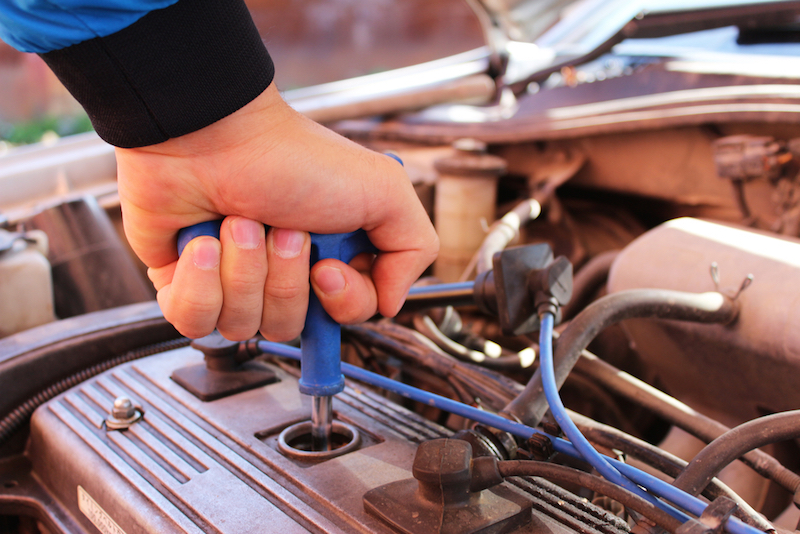Nothing keeps your vehicle running smoothly like a tune up. What’s included in a tune up varies, but it typically includes charging the vehicle’s battery, cleaning the fuel injectors and valves, and performing an emissions check, as well as replacing spark plugs and the fuel filter.
These preventative maintenance operations will keep your engine running smoothly, and can head off problems down the road. But many vehicle owners can’t tell when their car needs a tune up. While many manufacturers advise anywhere between 25,000 and 100,000 miles between tune ups, there are some signs that a tune up is more urgently needed. What are some of the best ways of knowing that your engine could use some TLC?
Its warning lights are on.
Most modern vehicles have several different warning lights on the dashboard, which can indicate any of a number of problems. When one of these go on, it’s always a good idea to take your vehicle in for a tune up, so that the mechanics can identify and resolve the problem at the same time.
Your vehicle is stalling, or is difficult to start.
If your engine stops turning without warning, or won’t start, that’s often a sign that it’s in need of a tune up. Stalling, in particular, often happens at intersections or upon acceleration, and it’s often due to problems with the fuel filter or with spark plugs. Get these checked out in a tune up ASAP, to avoid the danger this sudden deceleration (or complete stop) can cause.
Your mileage isn’t what it used to be.
It’s always a good idea to keep track of your vehicle’s mileage, but poor mileage can sneak up on you over time. Record your odometer’s reading every time you fill up the tank, to get an idea of how fast you’re burning through gas. If you see that your engine’s working with decreased efficiency, take it in for a tune up so the mechanic can look at your spark plugs and fuel injectors. If these are fine, the problem may be with tire pressure or even your brake pads.
Your car has started making strange sounds.
If your vehicle has started making sounds that it didn’t before, it may be in need of a tune up. Squealing or other high-pitched sounds that come from under the hood, for instance, may be a sign that a belt is loose or out of place. If a wheel is making noises, a mechanic should check the tires to see if they’re unbalanced. A tune up will help you get these problems under control.
Some of these problems might be inconvenient or annoying, while others are downright scary. But don’t worry — taking your vehicle in for a tune up is one of the best ways of getting the problem under control, and avoiding more serious and expensive problems that could arise later.




